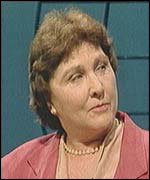|
Moral Panic - Child
Sexual Abuse |
|
|
The medical world has taken a
battering in recent years with a number of highprofile scandals, most
recently the revelations concerning the unnecessary removal of women's wombs
by the In many cases, the same complaints
emerged again and again about the procedures adopted by the Medical Council,
the profession's governing body in In another case last year, a
number of families who made allegations against Dr Moira Woods, the former
head of the Sexual Assault Treatment Centre at the The council, for its part, has
argued repeatedly that it has been hamstrung by governing legislation, which
although only 25 years old, is out-dated and unsuitable both for the rapidly
changing world of medical knowledge and of modern Irish society which is far
more questioning and demanding of open procedures than it was in 1978. Under current legislation, once
the council's powerful but hugely secretive Fitness to Practise Committee
decides that a complaint warrants a full investigation, matters become
legalistic very quickly. All parties are usually represented by senior
counsel and the patient, who is now considered only as a witness, can often
feel left out. The council has argued that
secrecy surrounding its disciplinary activities is built into its governing
1978 legislation, which prohibits it from commenting on a case to anyone -
from the complainant to the minister for health of the day - until a finding
has been reached. The requirement that cases must be
heard personally by members of Fitness to Practise Committee can also lead to
significant delays. As virtually all members of the committee are doctors,
they usually have busy practices of their own and can frequently only get
away to hear cases for two or three days every month or so. The Moira Woods inquiry lasted for
43 sitting days. However, because of delays and
legal wrangling over confidentiality and the release of official documents,
the case took five years to complete. Another bizarre example of the constraints
of the 1978 legislation emerged last year when it was discovered that a
British psychiatrist, John Harding Price, who had been suspended by
authorities in the In fairness, the Medical Council
has been aware of the shortcomings in the legislation for at least a decade
and has been pressing strongly for reform. However, either the political will
seemed to be absent or the Department of Health appeared to have been
concentrating on other priorities. However, the Neary scandal has
given the demands for reform increased political impetus. In the aftermath of
its finding that the Secondly, from now on the
government will have a direct financial interest in ensuring that doctors are
fully skilled in the most modern techniques and that the growing trend of
negligence cases taken by patients is curbed. From February, the state will take
over responsibility for paying for negligence cases. Last month, the Sunday
Tribune revealed that actuarial advisers had warned the Department of Health
that the state was facing a bill of up to E400m arising from medical errors
and negligence over the next seven years. Under the draft plans for
legislative reform, which will be presented to government in the weeks ahead,
all doctors will have to undergo mandatory assessment of the clinical
abilities on an ongoing basis. The Department of Health has not finalised its
plans but it is considering forcing doctors to undergo a peer review process
and a clinical audit every five years. In a move to improve public
confidence in the disciplinary process against doctors, the new legislation
will propose that all hearings be held in the open although there will be
provision for in camera sessions where considered appropriate. The new legislation will also
allow outside investigators to be commissioned to carry out reports on cases,
which would be forwarded to the council. Under the department proposals,
the grounds for a patient making a complaint against a doctor would be
extended to include: professional misconduct; unfitness to act as a doctor by
reason of physical or mental ailment; emotional disturbance; addiction to
alcohol or drugs; poor professional performance; alleged irregularities in relation
to the custody, prescription or supply of controlled drugs. The traditional dominance of
doctors on the Medical Council is also set to be diluted. The draft
legislation will allow the minister to appoint 12 non-medics to the council
to represent the public and the users of medical services.
The government move to change the
law governing medicine stems directly from the scandal involving Neary was found guilty of
professional misconduct and struck off the medical register earlier this year
after it found that he had unnecessarily removed the wombs of 10 women
patients. The proposed introduction of
mandatory clinical assessment of doctors' work follows warnings from the
Medical Council that at present the monitoring of doctors who operate
independent practices is "completely absent". New provisions in the draft
amendments that complainants be kept informed arises from concern expressed
by the women patients in the Neary case that they had been frequently kept in
the dark. Moves at speeding up procedures,
the provision to allow outside investigators to be brought in and new panels
of experts to hear cases arise from numerous complaints from patients at
delays in processing cases. Last year, the Medical Council
found Dr Moira Woods, the former head of the Sexual Assault Treatment Unit at
the The council censured Woods after
an inquiry that lasted five years. However, some of the families claimed that
it had taken 10 years from the time they made their initial complaint to the
final judgement. GRAPHIC: Medical scandal: |

